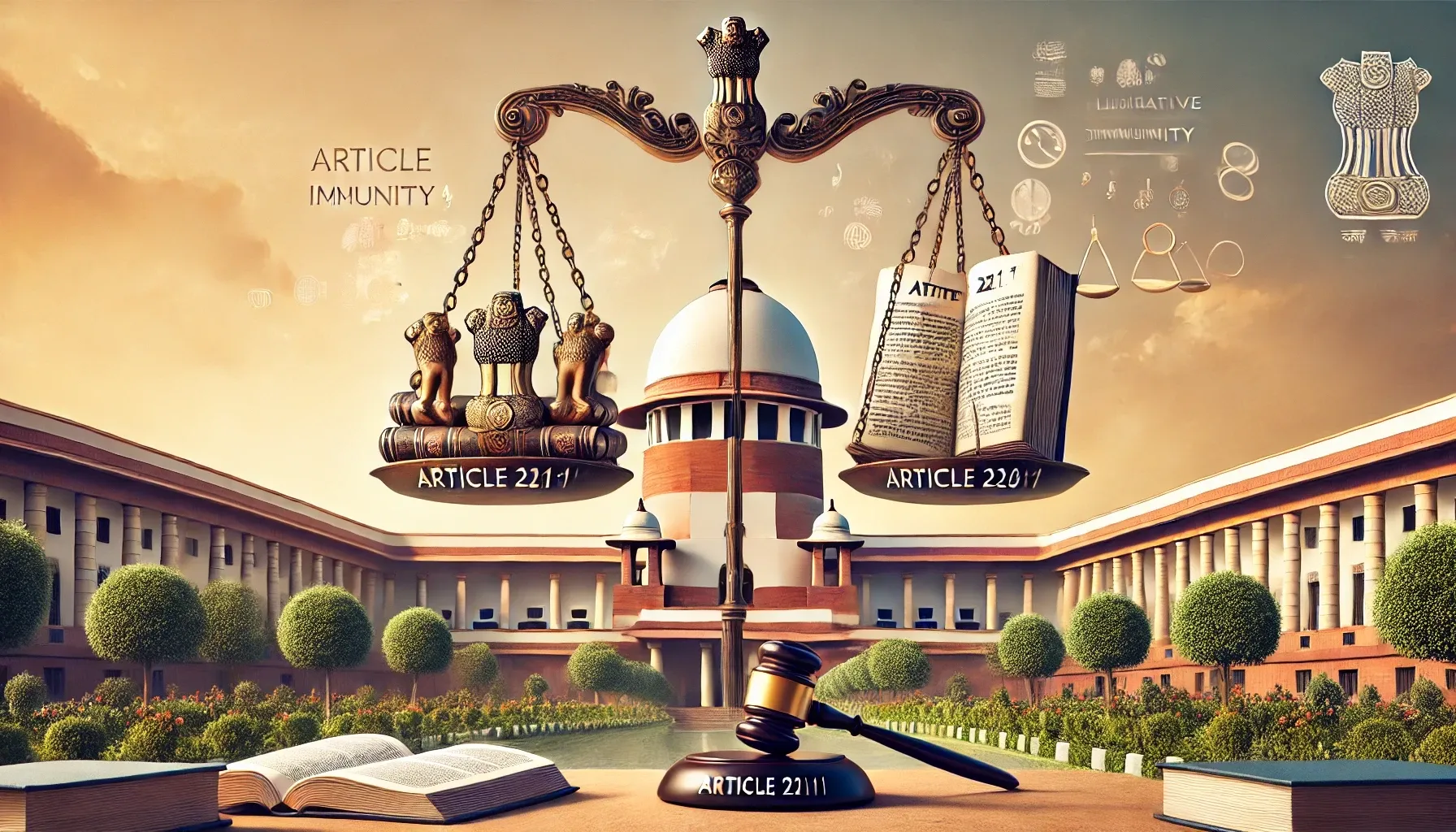The Supreme Court rules that legislative decisions, even if made by committees, are subject to judicial review, ensuring that legislative actions affecting fundamental rights are scrutinized.

on February 26, 2025, the Supreme Court of India ruled that legislative decisions are not immune from judicial review, clarifying the distinction between "proceedings in the legislature" and "legislative decisions." The case involved the expulsion of RJD MLC Sunil Kumar Singh from the Bihar Legislative Council after he made derogatory remarks about the Chief Minister of Bihar, Nitish Kumar. The Court's ruling underscores the scope of judicial reviewover legislative actions and reaffirms that such decisions can be scrutinized when they affect fundamental rights.
This ruling came after the Bihar Legislative Council challenged the maintainability of Singh's writ petition against his expulsion, citing Article 212(1) of the Constitution of India, which offers immunity to "proceedings in the legislature"from judicial review based on alleged procedural irregularities. The Court's verdict redefined the boundaries of legislative privilege, making it clear that legislative decisions impacting individuals' rights cannot remain unchallenged in the judicial arena.
The Case: Expulsion of Sunil Kumar Singh
- Sunil Kumar Singh, an MLC from the Rashtriya Janata Dal (RJD), was expelled from the Bihar Legislative Council for making derogatory comments about Nitish Kumar, the Chief Minister of Bihar.
- The Bihar Legislative Council argued that the expulsion was immune from judicial review under Article 212(1), which prevents scrutiny of legislative proceedings based on procedural issues.
The Court’s Ruling: Legislative Decisions vs. Proceedings
- The Supreme Court, through a bench of Justices Surya Kant and NK Singh, emphasized that Article 212(1)protects proceedings in the legislature but does not shield legislative decisions from judicial scrutiny.
- In their ruling, the Court distinguished between "proceedings in the legislature" and "legislative decisions":
- Proceedings in the Legislature: The formal steps, debates, and motions that occur within the legislative body. These processes are structured to facilitate deliberations and decision-making. Article 212(1) protects these proceedings from judicial review, particularly with respect to procedural irregularities.
- Legislative Decision: The final determination or outcome of the legislative process. This is the formal expression of the will of the legislature and is not immune from judicial review, especially if it affects an individual’s fundamental rights.
Judicial Review: A Safeguard for Fundamental Rights
- The Court observed that judicial review of legislative decisions is not an overstep of judicial authority but an essential safeguard for upholding constitutional supremacy and protecting fundamental rights.
- The Court pointed out that the Ethics Committee’s decision to expel Singh was an administrative action, not a legislative function, and therefore, could be reviewed by the judiciary.
- In the words of the Court, “It could not have been the intent of lawmakers to circumscribe Constitutional Courts unconditionally from scrutinising the validity of the actions of the Legislature, which may encroach upon the Fundamental Rights of the members and/or citizens.”
The Precedent: Ashish Shelar v. Maharashtra Legislative Assembly
- The Court relied on the precedent set in Ashish Shelar v. The Maharashtra Legislative Assembly, where the Court had held that administrative actions taken by legislative bodies or their committees could be subject to judicial review if they affect the rights and interests of individuals.
- This ruling reinforces that administrative actions, even when conducted by legislative bodies, are not beyond the reach of the judiciary.
Case Details: SUNIL KUMAR SINGH v. BIHAR LEGISLATIVE COUNCIL AND ORS., W.P.(C) No. 530/2024
Attachment:





